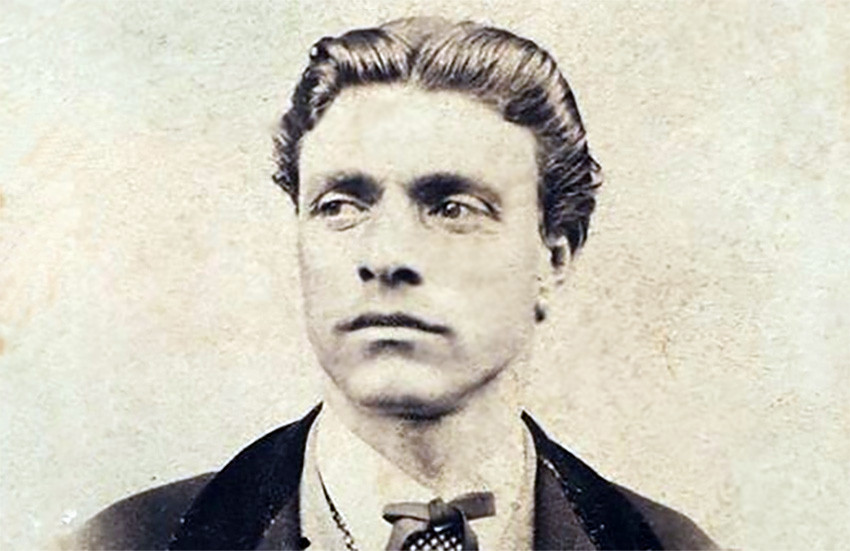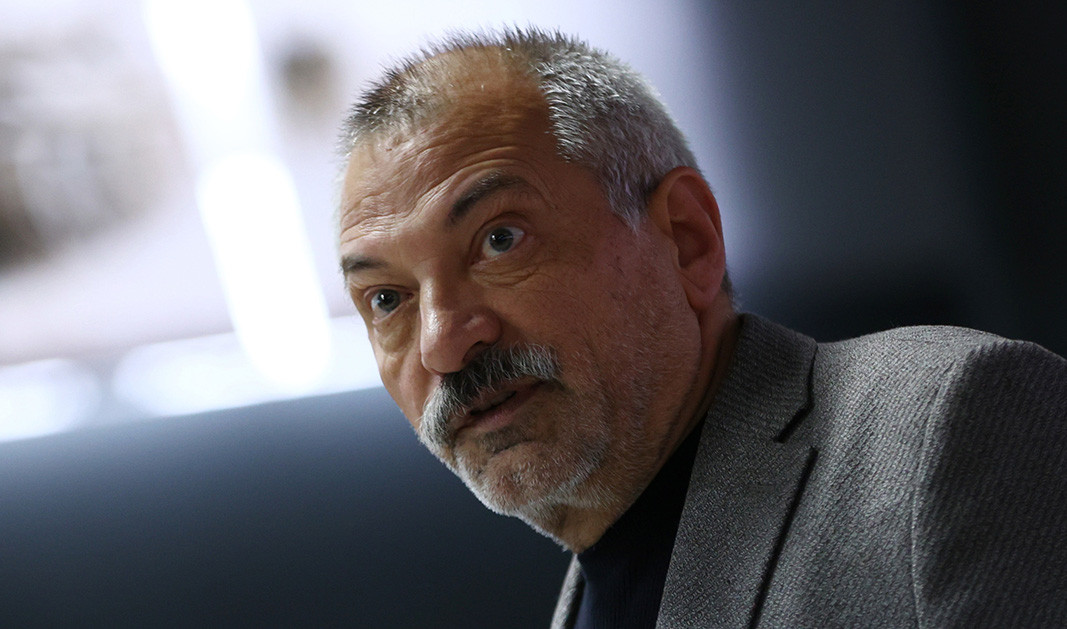Vasil Levski is a Bulgarian revolutionary and national hero who fought for the Liberation of Bulgaria from the Ottoman Empire. He is an ideologist, founder and organizer of the Internal Revolutionary Organization, for which grateful Bulgarians call him the Apostle of Freedom. He travelled across the country for 4 years and founded local revolutionary committees.

Levski was captured by the Ottoman Empire in 1872 and hanged on February 18 (February 6, old style calendar) in 1873. The organisation he created served to organize the April Uprising in 1876, considered a peak in the National Liberation Movement. The series of events caused by the uprising led to the resurrection of the Bulgarian state after five centuries of Ottoman rule.
Vasil Levski's personal notebook is considered one of the relics of Bulgaria’s National Revival. In this authentic document we can see the Apostle of Freedom not only in his role of a revolutionary, organiser of committees, a conspirator who planned an illegal network that should put an end to foreign domination. But most of all we see Levski as a person, Sofia University professor Plamen Mitev says.

"A reader of this notebook will find information about the Apostle's daily life, about how he lived, what he ate, how he dressed, how he maintained contacts with his relatives or with completely unknown people who helped him in some way in his activities. For me personally, this notebook is a universe that reveals many faces of the Apostle - not only the revolutionary, not only the ideologist, but above all the living person who can afford to convey the emotion he experienced. For example, on St. Basil's Day 1872, when unknown children came to him to congratulate him he had nothing to give them except for a few candies and he wrote this as an expense in this notebook.

Or when he mentions a Bulgarian widow with whom he lived for weeks and set a small amount aside so that he could help her feed her children. For me, these are very important accents that we can hardly find in his correspondence, in his political documents, in the emigration political press that tells about the liberation cause with a different language. The notebook reveals to us different and most human faces of the Apostle," the historian says.
It is very important for people to know that the information in this notebook is not consecutive. Levski wrote somewhat spontaneously and the information from the different pages must be very carefully followed and combined simultaneously with other documents that would provide the connections and explain the situation in which he wrote down a given fact. Many pages are missing from the notebook, there are also completely blank pages. Therefore, we ask Prof. Mitev how we should read and understand an address written in the notebook with four question marks "People????".

"People????" and the question marks facing the Bulgarian freedom
The researcher says that years ago Prof. Doyno Doynov connected these words with the words "chloroform" and "ammonia" written in Latin on the adjacent page. After a robbery of the Turkish post office in the Arabakonak Pass, the perpetrators were captured. Levski's assistant Dimitar Obshti told the Ottoman investigation about all the figures of the revolutionary committees he knew.

"Everyone can rely on their own way, to seek their own decoding of these question marks. But for me personally, they are an expression of this disappointment, which would make Vasil Levski admit to the investigators interrogating him in Sofia that ‘the Bulgarian is waiting for freedom to be served to him on a platter’. For two and a half years he put in a lot of effort to create a powerful, illegal organization that would start preparing a national uprising. And suddenly what happened in Arabakonak on September 22, 1872, the robbery of the Turkish post office, led to such a heavy blow that shattered before his eyes the hope and the dreams of a national uprising. So, probably, every generation will try to seek its own explanation of these question marks. But for me personally, they are an expression of this disappointment that the Apostle was going through in the last months of his life," university lecturer Prof. Plamen Mitev says.
Read also:
Publication in English: Al. Markov
Photos: nationallibrary.bg, museumvt.com, BTA, Ivo Ivanov
The Feast of the Annunciation is the day when God's promise for the salvation of the human soul from the eternal torments of darkness is fulfilled. Its message is that God loves us, says Father Bozhidar Marinov from the "Exaltation of the Holy Cross..
Veliko Tarnovo is proud of its glorious past, encoded in the city’s holiday, associated with the day of the Holy Forty Martyrs – the spiritual patrons of Bulgaria's medieval capital. On the day of the 40 followers of Christ (March 22 according to..
The book "Icons from the National Church Historical and Archaeological Museum" - a huge work of over 500 pages, with more than 700 published photographs and accompanying scientific articles, was officially presented a few days ago. The unique..
The Zograf Monastery on Mount Athos has a new abbot. Hieromonk Gavriil has been elected as the new abbot of the monastery, reported the website of the..
Passion Week is the last week before Easter. It is also the most austere week of fasting at the end of the long Great Lent, which prepares the faithful for..

+359 2 9336 661
